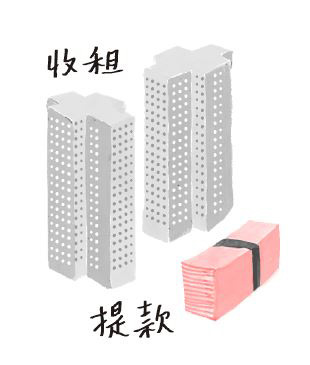| Spouse (and/or partner(s)) |
Children (and/or illegitimate children) |
Parents |
Siblings of the whole blood or their children |
Distribution of estate |
Results |
| ✔ |
✘ |
-- |
-- |
Spouse:
- All personal chattels and residuary estate
|
The spouse is entitled to all of the following:
- All personal chattels in the main residence
- $2,000,000 in savings
- 100% ownership of the main residence
- $1,000,000 in shares
|
| ✘ |
✔ |
-- |
-- |
Children:
- All or an equal share of personal chattels and residuary estate
|
Each child is entitled to an equal share of the following:
- All personal chattels in the main residence
- $2,000,000 in savings
- 100% ownership of the main residence
- $1,000,000 in shares
|
| ✘ |
✘ |
✔ |
-- |
Parents:
- All or an equal share of personal chattels and residuary estate
|
Surviving parents are entitled to all or an equal share of the following:
- All personal chattels in the main residence
- $2,000,000 in savings
- 100% ownership of the main residence
- $1,000,000 in shares
|
| ✔ |
✔ |
-- |
-- |
Spouse:
- All personal chattels
- A net sum of $500,000 from the residuary estate
- Half of the remaining residuary estate after $500,000 is deducted
|
The spouse is entitled to the following (with a total sum of $2,750,000):
- All personal chattels in the main residence
- $500,000 in savings
- One of the followings in agreement with the children:
- 100% ownership of the main residence and $250,000 in cash or shares from the remaining residuary estate; or
- 50% ownership of the main residence and $1,250,000 in cash or shares from the remaining residuary estate; or
- $2,250,000 in cash or shares from the remaining residuary estate
|
|
Children:
- All or an equal share of half of the remaining residuary estate after $500,000 is deducted
|
Each child is entitled to an equal share of the following, in agreement with the spouse (with a total sum of $2,250,000):
- $2,250,000 in cash or shares from the remaining residuary estate; or
- 50% ownership of the main residence and $1,250,000 in cash or shares from the remaining residuary estate; or
- 100% ownership of the main residence and $250,000 in cash or shares from the remaining residuary estate
|
| ✔ |
✘ |
✔ |
-- |
Spouse:
- All personal chattels
- A net sum of $1,000,000 from the residuary estate
- Half of the remaining residuary estate after $1,000,000 is deducted
|
The spouse is entitled to the following (with a total sum of $3,000,000):
- All personal chattels in the main residence
- $1,000,000 in savings
- One of the followings in agreement with the parents:
- 100% ownership of the main residence; or
- 50% ownership of the main residence and $1,000,000 in cash or shares from the remaining residuary estate; or
- $2,000,000 in cash or shares from the remaining residuary estate
|
|
Parents:
- All or an equal share of half of the remaining residuary estate after $1,000,000 is deducted
|
Surviving parents are entitled to all or an equal share of the following, in agreement with the spouse (with a total sum of $2,000,000):
- $2,000,000 in cash or shares from the remaining residuary estate; or
- 50% ownership of the main residence and $1,000,000 in cash or shares from the remaining residuary estate; or
- 100% ownership of the main residence
|
| ✔ |
✘ |
✘ |
✔ |
Spouse:
- All personal chattels
- A net sum of $1,000,000 from the residuary estate
- Half of the remaining residuary estate after $1,000,000 is deducted
|
The spouse is entitled to the following (with a total sum of $3,000,000):
- All personal chattels in the main residence
- $1,000,000 in savings
- One of the followings in agreement with the siblings or their children:
- 100% ownership of the main residence; or
- 50% ownership of the main residence and $1,000,000 in cash or shares from the remaining residuary estate; or
- $2,000,000 in cash or shares from the remaining residuary estate
|
|
Siblings or their children:
- All or an equal share of half of the remaining residuary estate after $1,000,000 is deducted
|
Each sibling is entitled to an equal share of the following; children of a deceased sibling are entitled to an equal share of the deceased sibling's share (with a total sum of $2,000,000):
- $2,000,000 in cash or shares from the remaining residuary estate; or
- 50% ownership of the main residence and $1,000,000 in cash or shares from the remaining residuary estate; or
- 100% ownership of the main residence
|
| ✘ |
✘ |
✘ |
✔ |
Siblings or their children:
- All or an equal share of all personal chattels and residuary estate
|
Each sibling is entitled to an equal share of the following; children of a deceased sibling are entitled to an equal share of the deceased sibling's share:
- All personal chattels in the main residence
- $2,000,000 in savings
- 100% ownership of the main residence
- $1,000,000 in shares
|
